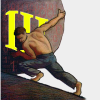Fasting and prayer are religious exercises; the enjoining them an act of discipline. Every religious society has a right to determine for itself the time for these exercises, and the objects proper for them, according to their own particular tenets; and right can never be safer than in their hands, where the Constitution has deposited it. Thomas Jefferson, 1808Since my High School and College days, Thomas Jefferson has been a bit of a hero to me. Consequently I read several compilations of his writing and learned a lot more about his life than was necessary to get through the required history classes. I was immediately suspicious of the above quotation. Turns out it is taken out of context and is used to imply the opposite of what Jefferson was actually expressing when he penned it.
Here is the full text of the the letter to the Reverend Samuel Miller dated Jan 23, 1808 with the out of context quote highlighted:
Sir, — I have duly received your favor of the 18th and am thankful to you for having written it, because it is more agreeable to prevent than to refuse what I do not think myself authorized to comply with. I consider the government of the U S. as interdicted by the Constitution from intermeddling with religious institutions, their doctrines, discipline, or exercises. This results not only from the provision that no law shall be made respecting the establishment, or free exercise, of religion, but from that also which reserves to the states the powers not delegated to the U.S. Certainly no power to prescribe any religious exercise, or to assume authority in religious discipline, has been delegated to the general government. It must then rest with the states, as far as it can be in any human authority. But it is only proposed that I should recommend, not prescribe a day of fasting & prayer. That is, that I should indirectly assume to the U.S. an authority over religious exercises which the Constitution has directly precluded them from. It must be meant too that this recommendation is to carry some authority, and to be sanctioned by some penalty on those who disregard it; not indeed of fine and imprisonment, but of some degree of proscription perhaps in public opinion. And does the change in the nature of the penalty make the recommendation the less a law of conduct for those to whom it is directed? I do not believe it is for the interest of religion to invite the civil magistrate to direct it's exercises, it's discipline, or it's doctrines; nor of the religious societies that the general government should be invested with the power of effecting any uniformity of time or matter among them. Fasting & prayer are religious exercises. The enjoining them an act of discipline. Every religious society has a right to determine for itself the times for these exercises, & the objects proper for them, according to their own particular tenets; and this right can never be safer than in their own hands, where the constitution has deposited it.In the letter Jefferson explains his refusal to declare a National Day of Prayer. He summed up his objection by stating that "...every one must act according to the dictates of his own reason, & mine tells me that civil powers alone have been given to the President of the U S. and no authority to direct the religious exercises of his constituents."
I am aware that the practice of my predecessors may be quoted. But I have ever believed that the example of state executives led to the assumption of that authority by the general government, without due examination, which would have discovered that what might be a right in a state government, was a violation of that right when assumed by another. Be this as it may, every one must act according to the dictates of his own reason, & mine tells me that civil powers alone have been given to the President of the U S. and no authority to direct the religious exercises of his constituents.
I again express my satisfaction that you have been so good as to give me an opportunity of explaining myself in a private letter, in which I could give my reasons more in detail than might have been done in a public answer: and I pray you to accept the assurances of my high esteem & respect.
Words that Jefferson's successor would have done well to heed. Maybe that is why the right wing socialists (AKA conservatives) down in Texas are trying to remove Jefferson from the history books.
I leave aside for the moment the questionable wisdom of beseeching one of the fairies at the bottom of the garden for special treatment.

No comments:
Post a Comment
Off topic comments will be deleted. Comments with spelling or grammar errors may be deleted unless they have hoplophobic or statist content in which case they will be highlighted and ridiculed.
Note: Only a member of this blog may post a comment.